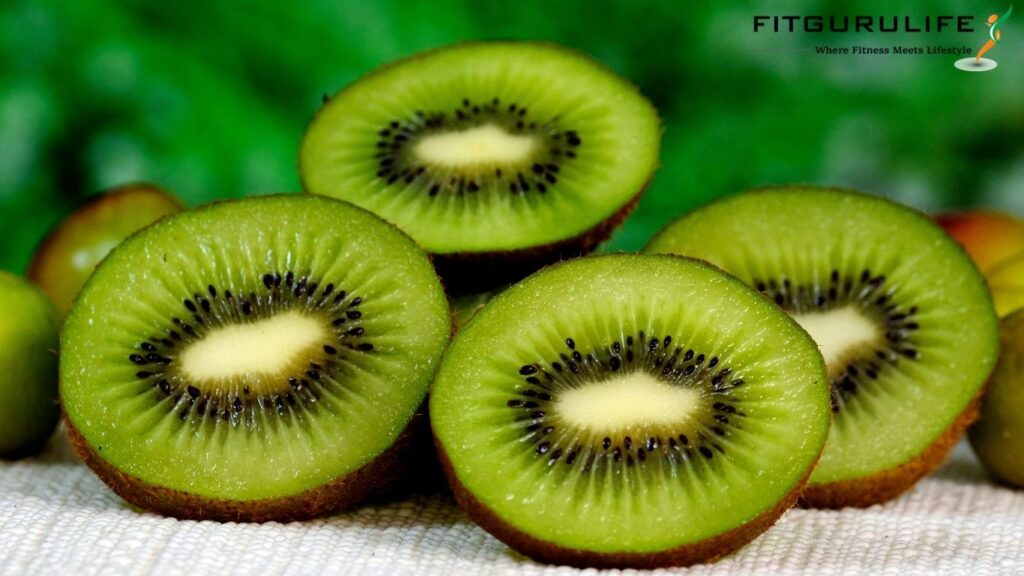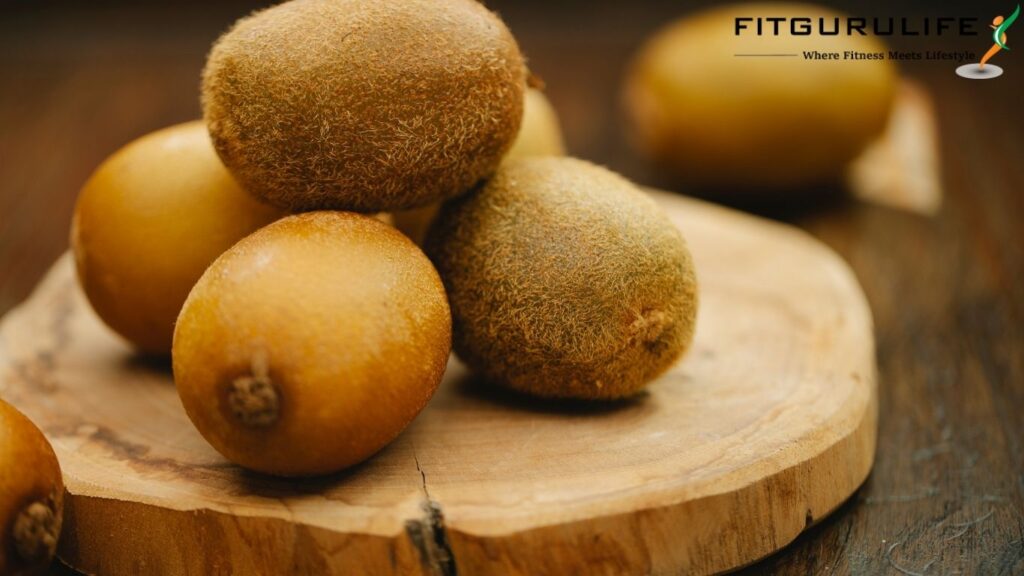When we think of superfoods, our minds often drift to exotic berries, leafy greens, and ancient grains. However, there’s a familiar and delicious fruit that deserves a spot on the superfood list – the humble kiwi. With its vibrant green color and tangy-sweet taste, kiwi is not just a delightful treat but also a nutritional powerhouse. In this comprehensive guide, we will delve deep into the numerous nutritional benefits of kiwi and explore why it should be a regular part of your diet.
The Nutritional Profile of Kiwi :
Vitamins
- Kiwi is renowned for its incredibly high vitamin C content. Just one medium-sized kiwi provides about 71 mg of vitamin C, which is more than the recommended daily intake. Vitamin C is essential for numerous bodily functions, including the formation of collagen, absorption of iron, and boosting the immune system. b. Vitamin K
- Kiwi is a good source of vitamin K, with one medium-sized kiwi offering about 31 mcg of this essential nutrient. Vitamin K plays a crucial role in blood clotting and bone health. c. Vitamin E
- While not as abundant as vitamin C or K, kiwi also contains vitamin E, a powerful antioxidant that supports healthy skin and eyes.
Minerals
- Kiwi is rich in potassium, with one medium-sized kiwi containing about 215 mg of this essential mineral. Potassium helps to regulate blood pressure, balance fluids in the body, and support nerve and muscle function. b. Magnesium
- Kiwi contains magnesium, which is vital for many biochemical reactions in the body, including energy production and muscle contraction.
Antioxidants
Kiwi is loaded with antioxidants that help fight free radicals in the body. These antioxidants include vitamin C, vitamin E, and various polyphenols that have anti-inflammatory and anticancer properties.

Dietary Fiber
Kiwi is a good source of dietary fiber, with one medium-sized kiwi providing about 2.1 grams of fiber. Fiber is essential for digestive health, as it helps prevent constipation and may reduce the risk of chronic diseases such as heart disease and diabetes.
Enzymes
Kiwi contains the enzyme actinidin, which helps to break down protein, making it easier to digest. This is particularly beneficial for people who may have trouble digesting certain types of protein, such as those found in dairy and meat.
Health Benefits of Kiwi
Immune Support
The high vitamin C content in kiwi is excellent for boosting the immune system. Vitamin C helps to stimulate the production of white blood cells that fight off infection and illness.
Heart Health
Kiwi’s rich potassium content helps to regulate blood pressure and reduce the risk of stroke. Additionally, the antioxidants in kiwi can lower the risk of heart disease by reducing inflammation and preventing the oxidation of LDL cholesterol.
Digestive Health
The dietary fiber in kiwi helps to promote regular bowel movements and prevent constipation. Furthermore, the enzyme actinidin assists in breaking down proteins, improving digestion and preventing bloating.

Skin Health
The antioxidants in kiwi, particularly vitamin C and E, are fantastic for the skin. They help to protect the skin from damage caused by UV rays, pollution, and other environmental stressors. Additionally, vitamin C supports collagen production, which is essential for maintaining firm and youthful skin.
Respiratory Health
Some studies have shown that consuming kiwi can improve respiratory health, particularly in children. The vitamin C in kiwi may help to reduce symptoms of asthma and other respiratory conditions.
Weight Management
Kiwi is a low-calorie fruit that is high in fiber, making it an excellent choice for those looking to manage their weight. The fiber helps to keep you feeling full and satisfied, reducing the likelihood of overeating.
Eye Health
Kiwi contains lutein and zeaxanthin, two antioxidants that are essential for eye health. These antioxidants help to protect the eyes from damage caused by UV rays and reduce the risk of age-related macular degeneration.

Conclusion
The nutritional benefits of kiwi are truly remarkable. With its abundance of vitamins, minerals, antioxidants, and dietary fiber, kiwi is a superfood that should not be overlooked. Whether you enjoy it on its own, in a salad, or as part of a smoothie, incorporating kiwi into your diet is a delicious and easy way to boost your health and well-being. So, the next time you’re at the grocery store, don’t forget to pick up some kiwi and unlock the nutritional secrets of this amazing fruit!
